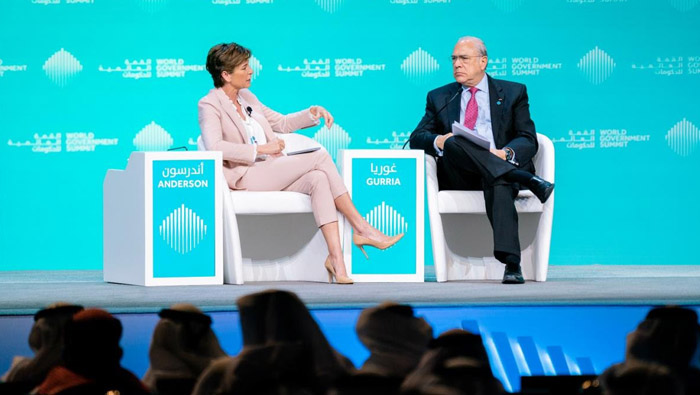
Muscat: One of the most senior officials of the Organisation for Economic Cooperation and Development (OECD) has called on governments and institutions around the world to collaborate far more closely around the Fourth Industrial Revolution, to harness the opportunities of technological change to end poverty, curb inequalities, confront discrimination and ensure vast numbers of people are not left behind.
Addressing a plenary session titled ‘The Future of the Economy in the Age of 4IR’, at the seventh World Government Summit (WGS 2019) in Dubai, José Angel Gurría, secretary-general of OECD, said it was vital that countries use digital technologies as a great equaliser, and not create a situation where they have to look after people who are unable to participate in a new digitally-driven economy.
“The digital transformation can change the world, but we have to create a level playing field.
In OECD countries alone, we estimate up to half of all people will be displaced or affected by technology. How do you empower the half of the workforce that will be affected? How do you provide the skills that will allow them to profit? What do you do with the hundreds of millions of youth who have not yet been incorporated into this new order?” Gurria asked, in response to questions by moderator Becky Anderson.
The OECD estimates that 133 million new jobs may emerge in the shake-up between humans and machines by 2022.
However, at the same time, 75 million jobs may be displaced.
The OECD’s projections suggest that one billion people worldwide lack the necessary digital literacy and skills to participate in the digital economy, with Gurria pointing to the fact that uneven broadband access means that less than half the world’s population uses the Internet. Globally, 200 million fewer women are online than men.
Gurria said countries across the world are at different stages of the digital revolution and some people will be left behind.
“Even in developed countries like the UK, you have cities just a few miles apart, in which you have 10 years’ difference in life expectancy. How do you deal with the responsibility to protect the vulnerable? How do you not create a situation where the state becomes a great provider of assistance?” he asked.
“The Fourth Industrial Revolution will have its upsides and downsides. It’s our challenge and duty to harness the upside, and mitigate the downside.”
The landmark event has convened more than 4,000 participants from 140 countries, including heads of state and governments, as well as top-tier representatives of 30 international organisations.